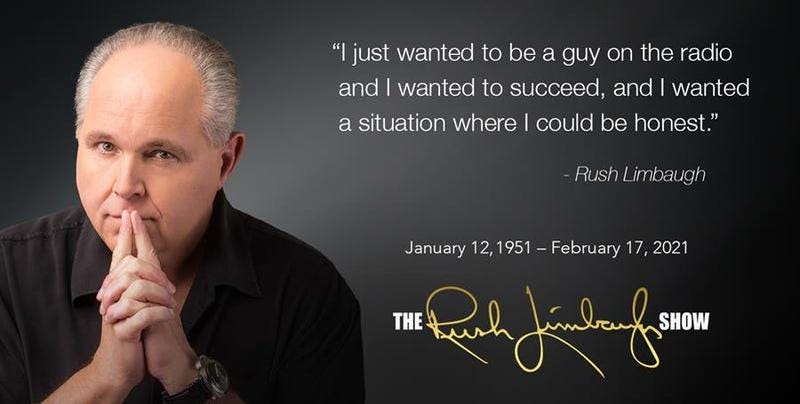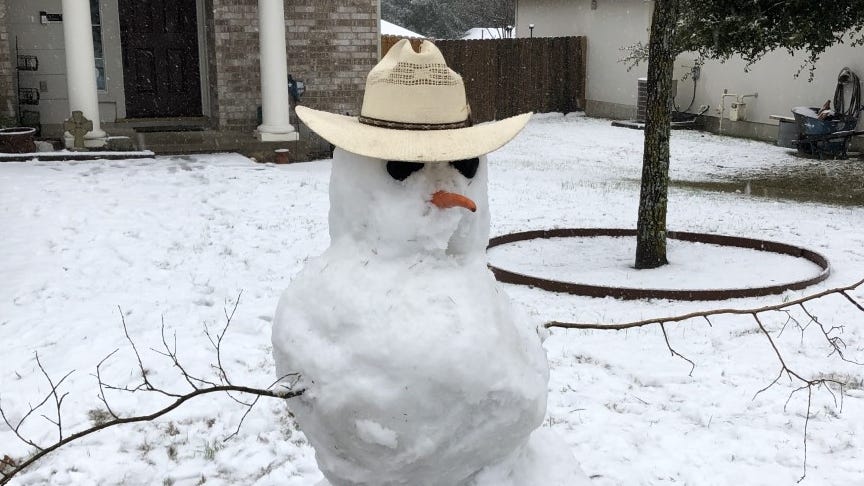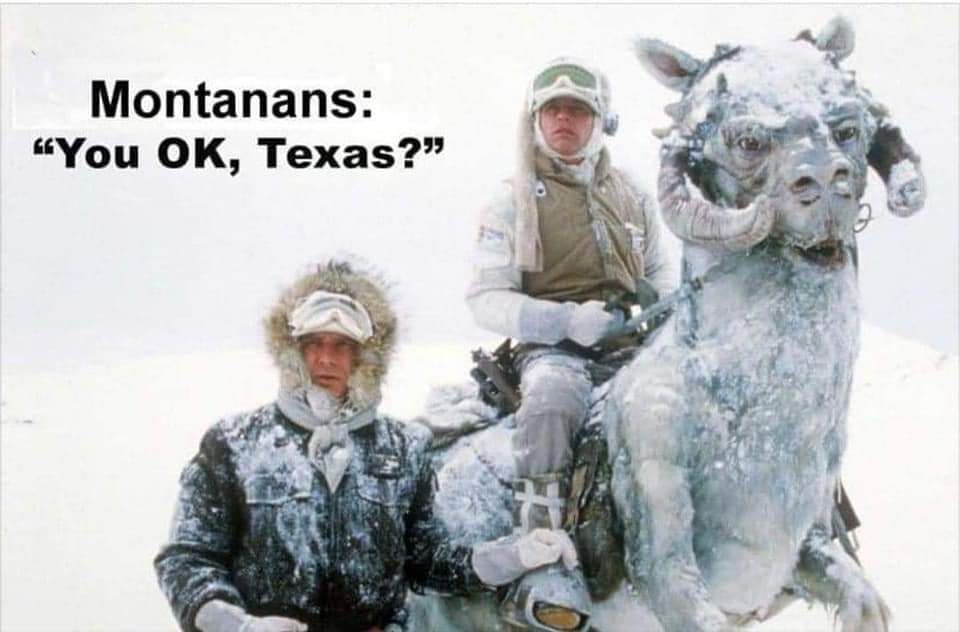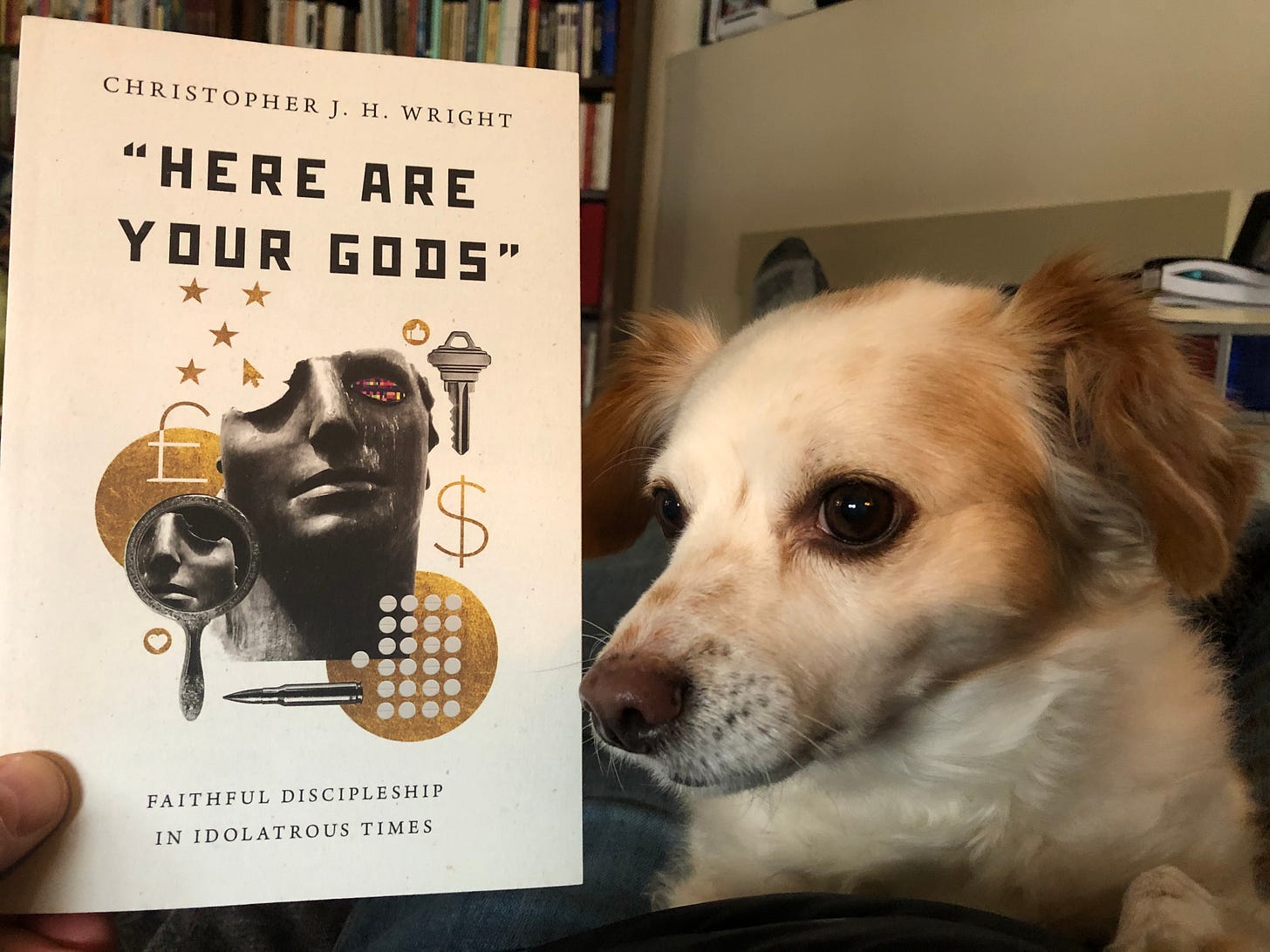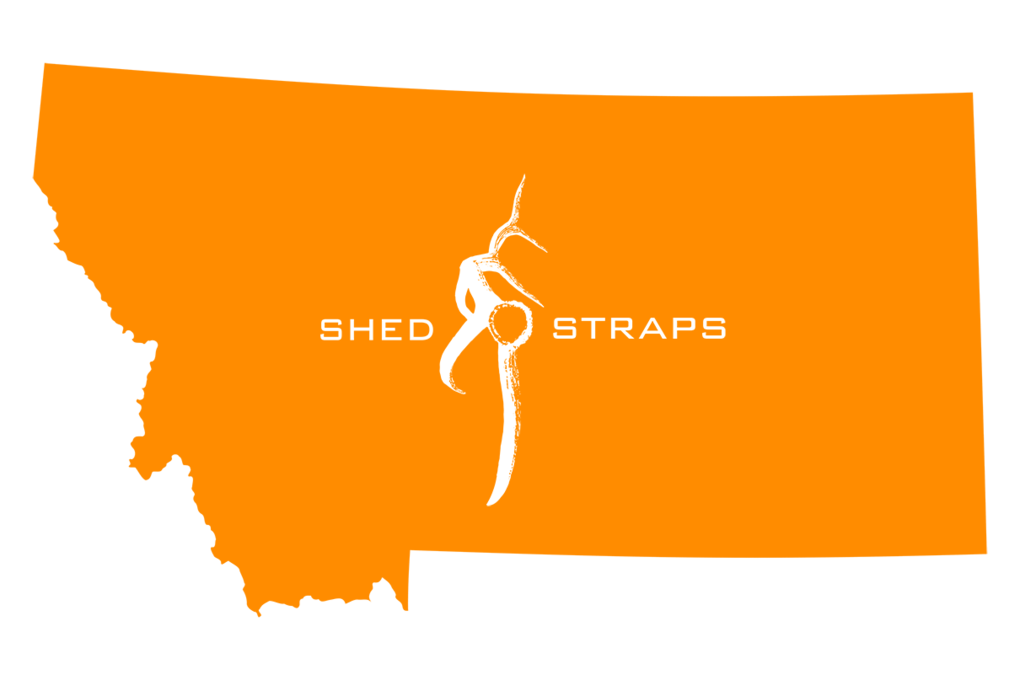When the Weather Forecast Calls for Humility
An Inconvenient/Convenient Convergence of Bad Weather and Lent
Dear Reader,
In last Friday’s Second Drafts, I shared one reader’s lament that my newsletter was too long. I promised to consider the critique, as well as ask readers for feedback. A few of you shared your thoughts, and I’m always happy to print them, regardless of whether you agree or disagree.
In this case, the first reader not only embraces/endures a longer newsletter, but is also willing to pay for it:
“Thank you for providing an opportunity for me to invest in myself every Friday. Your words remind/encourage/invite/inspire me to look upward before I look inward. And I love how you do this with a graceful word - which must be God speaking. The length may be long, but as I forward and invite my loved ones to subscribe, I share with them that this is an investment of their time and investment in themselves. And aren't we worth it? Have a blessed day, a blessed week, and know that I will continue to look forward to my inbox. Should you ever switch to subscription-status I will be the first to sign up!”
Here’s a brief review from a reader who rates her reading by cups of caffeinated beverages:
“Great newsletter. Two cups of coffee!”
Then there was this one from a friend whose spirit I very much appreciate and to whom my heart went out. I remember the days of young children and school, as they are truly exhausting:
“Just finished reading today's edition of Second Drafts. I am loving it each week. In response to the critique of ‘too long,’ I find that because I know it's going to be long, I make sure I have enough time to read it. Sometimes that means that I don't sit down to read it until Saturday or Sunday. But I always make sure that I have time to devote to it because it's long and because you're important to me.
How do you find time to behold the good stuff when you've got so much other stuff that needs beholding? I desperately want to have time to read the books you recommend and watch the videos as well, but I struggle to find time to behold good things when I have to play with my kids, do work, love my wife, and behold my college course requirements (which are not always beautiful). Somewhere in there I have to behold rest also. How do you balance all that? When will I get to a point where I can balance all that well?”
Without turning into Ann Landers (for those under 40, look her up), three things come to mind:
First, recognize that life stage matters. It’s a whole different ball game now being 50 with two kids out of the house and two more able to care almost completely for themselves than when I was 35 with four young ones who always needed something. Cut yourself some slack, trust that it won’t always be this way, and look to behold the best in your kids - they have stories to tell.
Second, with regard to reading and the like, quality not quantity becomes of prime importance. If you know you’re only going to get to read 3-5 books of your choosing in a year, make sure those choices are the absolute best and have value beyond just one generation; same for film, music, etc. Be particular because you have less time to be particular with…for now.
Finally, even in the midst of the chaos, try to still “order your loves,” as Augustine suggests and as it seems you’re trying to do. Now - in the throes of the demands - is when you will best learn how to do this; later - when your time is more your own - there won’t seem as much need (and therefore as much continued discipline).
That’s all I got (remember, you get what you pay for). Hope it helps, and thanks for writing.
And as always, thanks for reading, everyone. Enjoy this issue of Second Drafts.
Craig
Hot Takes
Long-time conservative radio talk show host Rush Limbaugh died Wednesday, succumbing to the lung cancer he had been fighting for the past year. The response to his passing has not been surprising, ranging from almost deistic worship from those on the right, to tasteless dancing on his grave from those on the left.
I always liked Rush…and I always disliked him. Though I’ve never been a consistent listener, I first heard him in college and remember marveling at the fact that someone was so boldly touting conservative ideals on a national radio program. This had become possible when, in 1987, the Federal Communications Commission (FCC) did away with the 1949 Fairness Doctrine, which “was a policy that required the holders of broadcast licenses to both present controversial issues of public importance and to do so in a manner that was honest, equitable, and balanced.” The following year, ABC Radio signed Limbaugh, and he had been going strong for 33 years, with the largest radio audience in the history of the medium at 15 million daily listeners.
I read Limbaugh’s first book, The Way Things Ought to Be, during my junior year in college and appreciated some of the ideas. What I liked about Rush was simply how good he was at what he did. He prepared, he delivered, and he did so in a tongue-in-cheek way (“half my brain tied behind my back just to keep it even”) that endeared him to his audience. As fierce and sharp of a thinker as he could be on a topic, he also seemed to grow (slightly) more emotionally empathetic to the plight of others, perhaps as a result of the onset of his deafness (which he adjusted to with a cochlear implant) and certainly because of his cancer diagnosis a year ago.
Unfortunately (and what this article points out), he had a lot of growing to do. What I never liked about Rush was the so-called “entertainment factor” of his show - the high-pitched mockery of political adversaries; the over-produced audio skits poking fun at Democrats that were rarely actually funny; the more bombastic name-calling and - let’s call it what it sure seemed like - race-baiting. These were not Rush’s best moments, and neither was his attempt at television, which failed (though one could argue - as this article does - that it opened the door for Fox News, along with creation of more conservative media and outlets).
Limbaugh has been called “the Babe Ruth of talk radio,” and I can’t argue with the analogy. But just like with baseball and Ruth (who did some damage to the game - emphasis on the home run, off-the-field wild lifestyle, etc. - as well as some good), I’d say the same about media and Limbaugh. There’s no question he changed things; it’s just a complicated answer to the question of “to what end?”
Rest in peace.
My friend, Eli Denison, a fellow teacher of Logic who teaches the subject to 8th graders at Petra Academy, sent me a link to this Super Bowl commercial from a few weeks ago. “Did you see this commercial for Logitech?” he asked. “I'm curious about what it's really saying in our modern day and age. Thoughts?”
I had somehow missed the commercial, so I’m glad Eli brought it to my attention. Of course, the conclusions that one could push back against are legion, but what is the underlying premise? I don't think the ad is a call to go against logic at all, as much as one to pursue moral autonomy. Christopher J.H. Wright, in his latest book, Here Are Your Gods: Faithful Discipleship in Idolatrous Times, writes:
"'You will be like God, knowing good and evil,' promises the serpent - if only humans would disregard God's boundary markers (Genesis 3:5). What could be more plausible or natural for a creature made in the image of God than to want to be 'like God'? The key to the temptation seems to be in the second phrase, 'knowing good and evil,' which I take to imply having moral autonomy. That is, what was being offered by the serpent and then claimed by the human pair through their disobedient act was not just the ability to recognize the difference between good and evil (which is surely foundational to any genuine moral freedom or moral capacity and is a faculty commended in the Bible elsewhere) but the right to define for oneself good and evil. It is the prerogative of God, in the supreme goodness of his own being, to decide and define what constitutes goodness and therefore conversely what is evil. Humans, however, in choosing to decide for ourselves what we will deem good or evil, usurp the prerogative of God in rebellious moral autonomy. At the same time, of course, by making our own definitions in a state of rebellion and disobedience, we end up in the moral perversions and chaos that have pervaded fallen human life ever since.
This interpretation of the phrase is supported by the way God recognizes the nature of what has happened: 'The man has now become like one of us, knowing good and evil' (Genesis 3:22). God accepts that humans have indeed breached the distinction referred to above. Not that humans have now become gods, but that they have chosen to act as though they were - defining and deciding for themselves what they will regard as good and evil. Therein lies the root of all other forms of idolatry: we deify our own capacities, and thereby make gods of ourselves, our choices, and all their implications. God then shrinks in horror from the prospect of human immortality and eternal life in such a fallen state and prevents access to the tree of life. God has a better way to bring humanity, redeemed and cleansed, to eternal life.
At the root, then, of all idolatry is human rejection of the God-ness of God and the finality of God's moral authority. The fruit of that basic rebellion is to be seen in many other ways in which idolatry blurs the distinction between God and creation, to the detriment of both." (p. 33-34)
If Logitech is looking to “defy logic” - as sin always does - mission accomplished.
When the Weather Forecast Calls for Humility
My friend Matthew Prosser lives and works as the Director of Communications for the Longview Independent School District in east Texas. After coming inside from surveying the 6-8 inches of snow and uber-cold temperatures that found their way to his part of Texas earlier this week, he posted this great quote from Jack London’s “To Build a Fire”:
“This man did not know cold. Possibly, all the generations of his ancestry had been ignorant of cold, of real cold, of cold 107 degrees below freezing point. But the dog knew; all its ancestry knew, and it had inherited the knowledge.”
I left him a comment affirming his quote-choosing skills and asked how he, his wife Candace, and their five kids were doing, then going on the second day without power. After reassuring me he and the fam were well, he wrote as only Matthew can:
“Nature is chaos. Nature is cruel. Nature is without conscience. Nature will steal your warmth and devour your bones, and never remember you were ever here. The worship of nature is a death cult.”
Maybe (if I can rightly interpret), I think what Matthew felt was an honest response to what he was living through: an overwhelming interaction with something he was at the mercy of, and a greater sense of humility in needing to learn how to deal with it.
Humility, Not Interrogation
There’s nothing like a winter snowstorm (especially when one lives in Texas) to remind a man of his vulnerability to the elements. I (who don’t live in Texas) think about this all the time when it gets below zero here and there’s a cold north wind blowing. Given the wrong circumstance, I recognize it wouldn’t take much for Montana to kill me.
If there is one thing weather of the worst kind - snow, ice, tornado, hurricane, flood, heat, drought - teaches us, it is that we have no say or control concerning any of it.
None. Nada.
Zero. Zilch.
Yet for some reason, we think we do or should, neither of which is helpful or good.
Consider God’s words in Job 38, which if you’ve never read or haven’t read in a while, take a few minutes to slowly do so here (I’ve copied them here just for you):
1 Then the LORD answered Job out of the whirlwind and said:
2 “Who is this that darkens counsel by words without knowledge?
3 Dress for action like a man;
I will question you, and you make it known to me.4 Where were you when I laid the foundation of the earth?Tell me, if you have understanding.
5 Who determined its measurements—surely you know!
Or who stretched the line upon it?6 On what were its bases sunk,
or who laid its cornerstone,7 when the morning stars sang together
and all the sons of God shouted for joy?8 Or who shut in the sea with doors
when it burst out from the womb,9 when I made clouds its garment
and thick darkness its swaddling band,10 and prescribed limits for it
and set bars and doors,11 and said, ‘Thus far shall you come, and no farther,
and here shall your proud waves be stayed’?12 Have you commanded the morning since your days began,
and caused the dawn to know its place,13 that it might take hold of the skirts of the earth,
and the wicked be shaken out of it?14 It is changed like clay under the seal,
and its features stand out like a garment.15 From the wicked their light is withheld,
and their uplifted arm is broken.16 Have you entered into the springs of the sea,
or walked in the recesses of the deep?17 Have the gates of death been revealed to you,
or have you seen the gates of deep darkness?18 Have you comprehended the expanse of the earth?
Declare, if you know all this.19 “Where is the way to the dwelling of light,
and where is the place of darkness,20 that you may take it to its territory
and that you may discern the paths to its home?21 You know, for you were born then,
and the number of your days is great!22 Have you entered the storehouses of the snow,
or have you seen the storehouses of the hail,23 which I have reserved for the time of trouble,
for the day of battle and war?24 What is the way to the place where the light is distributed,
or where the east wind is scattered upon the earth?25 “Who has cleft a channel for the torrents of rain
and a way for the thunderbolt,26 to bring rain on a land where no man is,
on the desert in which there is no man,27 to satisfy the waste and desolate land,
and to make the ground sprout with grass?28 Has the rain a father,
or who has begotten the drops of dew?29 From whose womb did the ice come forth,
and who has given birth to the frost of heaven?30 The waters become hard like stone,
and the face of the deep is frozen.31 Can you bind the chains of the Pleiades
or loose the cords of Orion?32 Can you lead forth the Mazzaroth in their season,
or can you guide the Bear with its children?33 Do you know the ordinances of the heavens?
Can you establish their rule on the earth?34 Can you lift up your voice to the clouds,
that a flood of waters may cover you?35 Can you send forth lightnings, that they may go
and say to you, ‘Here we are’?36 Who has put wisdom in the inward parts
or given understanding to the mind?37 Who can number the clouds by wisdom?
Or who can tilt the waterskins of the heavens,38 when the dust runs into a mass
and the clods stick fast together?”
I don’t know about you (and I’m just spit-balling here), but I’m guessing your answer to the majority of these question is the same as mine: “I don’t know” and/or “no”. The truth is, we are vulnerable and, like Jack London, ignorant of the cold - of the real cold. But unlike Jack London’s dog, we’ve forgotten any knowledge of the cold we may have once had, and strangely, we still think we can make nature do what we say.
Still, there’s hope for us. Just as after God re-taught him the necessary lesson, listen to Job’s response from Job 42:
1 Then Job answered the LORD and said:
2 “I know that you can do all things,
and that no purpose of yours can be thwarted.3 ‘Who is this that hides counsel without knowledge?’
Therefore I have uttered what I did not understand,
things too wonderful for me, which I did not know.4 ‘Hear, and I will speak;
I will question you, and you make it known to me.’5 I had heard of you by the hearing of the ear,
but now my eye sees you;6 therefore I despise myself,
and repent in dust and ashes.”
The right response - before God and his creation - is humility, not interrogation.
Peeling Away the Comforts and Consolations
To this end of humility, my friend Dustin Messer (an Episcopal priest in Dallas) shared this 7-minute Ash Wednesday homily. Even more than the video, however, I resonated with his words introducing it on Facebook:
“I get all of the anger about our electrical grid, etc., however:
We Moderns presume too much upon life. We tend to see comfort as the norm, and therefore think any adversity must be a sin of commission perpetrated on us by some oligarchic cabal.
The truth is, pain, tragedy, and misery are the baseline of the human experience while warmth, mercy, and joy are exogenous gifts.
Because we take comfort for granted, we are quick to search for the source of bad things, but slow to look for the source of good things.
Lent is a season in which we strip ourselves of comfort so that we might learn to see God as our refuge and strength, our very present help in times of trouble.
Moments like these remind us how frail even the most sturdy of our efforts are. We learn to trust not in our own strength, but in God's. And it is far, far, better to learn that in this life than the next.”
Like a winter snowstorm and no power, the season of Lent (which began on Wednesday) can serve to uncover our vulnerabilities and help us better understand how helpless we really are spiritually and physically. This is not to draw an unnecessary line between spiritual and physical aspects of our humanity (as a seminary professor of mine once said, “Man does not have a body; man is a body”); rather, it illustrates the shared need of the two and the solution for both: trusting Christ and submitting ourselves and our needs to His love, His provision, His mercy, His grace.
Moments like these are when we can humbly learn to deal with the discomfort that we experience in this world. Now is when we can reconfigure our expectations of this life and adjust what we think we deserve. If we’re honest, we may find the only thing we deserve is death, which makes everything else top side of the grave, gravy.
“Lord, you have been our dwelling place in all generations. Before the mountains were brought forth, or ever you had formed the earth and the world, from everlasting to everlasting You are God.” Psalm 90-12
Post(erity): “Come Hell or High Water”
Each week, I choose a post from the past that seems apropos of something (of course, you’re always welcome to search the archives yourself whenever you like).
Continuing on with the theme of learning humility from nature, I’ve selected this post from June 24, 2012, titled, “Come Hell or High Water,” which features several natural disasters I’ve personally lived through and a little of how they’ve shaped me.
Peaches Picks
Christopher J.H. Wright wrote one of, if not the favorite, book that I studied in seminary, Old Testament Ethics for the People of God. I’ve not really read much by him since (though he has written plenty), so Peaches suggested we pick up his latest here.
As perhaps you can tell from my inclusion of an excerpt in the Hot Takes section above, Wright runs in deep but still navigable waters when it comes to writing about the Scriptures and moral issues. The thing I appreciate most is how he gets to the issue beneath the issue when it comes to ethical questions, grounding observations and teaching in Scripture (particularly the moral code of the Law and the Old Testament, which always materializes in Jesus and the New Testament as one canon).
Recommended.
Friends Doing Cool Things
Full disclosure: this week’s “Friends Doing Cool Things” should be more accurately titled, “Family Doing Cool Things,” as I’m featuring my oldest daughter Maddie, her husband Bruce, and the entrepreneurial launch of their new business, Shed Straps.
Shed hunting is the search for antlers that have been shed by deer, elk, and moose. Shed Straps, then, are Bruce and Maddie’s idea of how to custom display what shed hunters might find. According to their website, Shed Straps are designed to be:
versatile - with an adjustable leather strap, customers are able to hang any deer, elk, or moose antler on the wall; the possibilities of how the finished product will look are as unique as the antlers themselves.
rustic - the aesthetics of the device complement the rough beauty of any antler by being made of steel with a cold blue finish and genuine leather.
durable - the steel is sealed to resistant weather and the genuine leather will keep its shape over time.
accessible - easily remove the antler from the display and show it off to your friends and family; then easily hang the antler back up into its display.
Also from their website:
“Shed Straps was established by Bruce and Maddie Clark in Bozeman, Montana, to display rugged antlers inside homes. Both of them enjoy shed hunting every spare moment of their Spring and have developed a fascination with antlers that is difficult to describe. Both Maddie and Bruce believe that antlers are special, a sort of relic or icon of the places where they were found. What better way to remember these wild places and animals than displaying these relics in our homes?”
If you or someone you know is in need of hanging decorative sheds, I know a guy (and his girl). Thanks for visiting their website (they say “Thank you!” as well).
Close to Home
I've never met Pittsburgh Pirates relief pitcher Geoff Hartlieb, but his grandfather was my school bus driver, his uncle (four years my elder) was an athletic role model, and, even though his mother, Wendy, was five or six years older than me, I and every boy in my class had a crush on her and would line the elementary hallway before school in the morning just to say hello when she walked through to the high school wing from her house across the street.
Wendy was always very sweet to us in our collective swooning, and I promise you that none of us thought our lives could get any better than during those morning moments of interaction. Sadly, she died in 2015 from lung cancer at the age of 49, but not without impacting those around her and whom she loved, including her son.
Best of luck with the upcoming season, Geoff. We all loved your mom, and know she would be proud.
Fresh Linkage
Perseverance Rover Has Successfully Landed on Mars and Sent Back its First Images - Unless, that is, you’re a conspiracy theorist, in which case you’re pretty sure the rover is tooling around somewhere in the Oklahoma Panhandle.
Why It Matters That Some Pigs Are Actually Pretty Good at Playing Video Games - If you’ve been around pigs, you know they’re smart. Why is this news?
Why Subscribe?
Why not? Second Drafts is a once-a-week newsletter delivered to your inbox (you can also read it online or through your RSS reader) and it’s totally free.)
Keep Connected
You’re welcome to follow me on Twitter.




